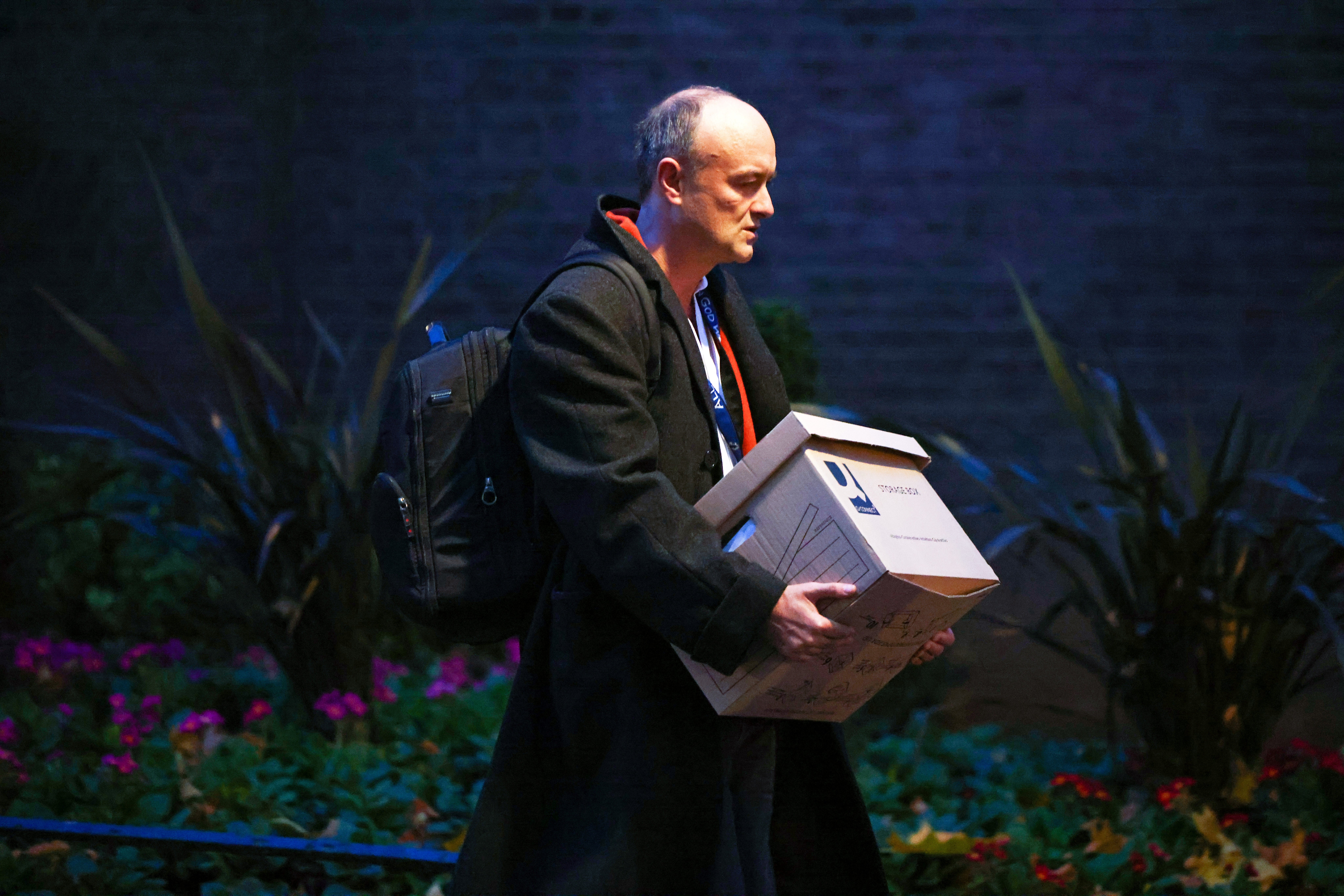The personnel in Downing Street may change – but the problems with the economy stay the same
Boris Johnson and Rishi Sunak will have to come together and agree a half-dozen or so quick wins on regional policy, writes Hamish McRae


The politics change but the numbers stay the same. The hill that Boris Johnson has to climb to restore a reputation for competent management is nothing to the mountain range that faces the economy.
With Dominic Cummings out, it is reasonable to expect that there will be a more cooperative operation at No 10. But what does this political revolution mean for the slog that faces the economy – actually faces the rest of us, because we have to do the work – over the next couple of years?
The first thing is that economic policies have to become more coherent and less piecemeal. That is not a criticism of Rishi Sunak’s initiatives so far. Most of the intervention had to be piecemeal, framing a policy to match a crisis. The “Eat Out to Help Out” support for the hospitality industry was a good example of that.
However, next year as we gradually scramble back to some sort of normality, fiscal policy will switch from emergency aid to solid support. Instead of trying to hand out the dosh in the most effective a way possible, the focus will inevitably be on how best to get the money back in.
The aim must be on how to get the economy into decent shape on a three-year view. The UK has had a poorish performance during the downturn, though probably not as poor as the GDP numbers currently suggest. Expect them to be revised up. Three years from now what will matter in both political and more important human terms, will be that unemployment is back down to pre-pandemic levels and real incomes are decently up from where they were then.
In short, the government’s economic policies have to be more successful in the future than they have in the past. Is that likely?
The answer is: probably yes. There is an overarching reason, which is that the prime minister and the chancellor will work better together now the mechanics of government will become more orderly. The decisions fall into three broad groups: spending, tax, and regulation.
On the spending side there has to be a total rethink of priorities. There will always be a clamour to spend more, but even the most enthusiastic believers that public spending fixes problems would acknowledge that a billion spent on one thing is a billion not available to be spent on something else. There is the aspiration in government to level up the economy of the north of England, but even if there are a coherent set of ideas of how to do so, it will be very hard to have much to show in three years’ time.
So the PM and the chancellor will have to come together and agree a half-dozen or so quick wins on regional policy. That is imperative politically, but it is also important in economic terms. Those potential wins them have to be fitted into a longer-term pro-business strategy. Pro-business? Well absolutely. Businesses large and small have been hammered over the past year and face further upheavals over Brexit, for there will be some disruption to trade flows whatever the outcome of the current talks.
To be brutal, only business can dig the economy out of this one. There are 5.5 million people employed in the public sector. There are 27.5 million people employed in the private sector. But the relationship between the PM and the business community has been, shall we say, less than perfect.
On the tax side, it is widely accepted that there will eventually have to be some increases when the economy is strong enough to bear them. This will be extremely difficult in political terms. It always has been. Remember how even Gordon Brown was extremely cautious about increasing taxation. But it will be particularly difficult for this government. It was not elected for that.
Whatever the government does do on tax has to be seen as fair as well as doing the least damage to the real economy. That will need close cooperation between No 10 and No 11. On this the PM and the chancellor must hang together. As Benjamin Franklin memorably said in 1776 when they were agreeing the Declaration of Independence: “We must, indeed, all hang together or, most assuredly, we shall all hang separately.”
And regulation? Again, there has to be cooperation. There will be opportunities, post-Brexit, to manage the multiple layers of business regulation more sensibly, establishing principles of good behaviour rather than going for box-ticking compliance. But detail is the key. That is not Boris Johnson’s long suit, so he needs the orderly back-up that has been sorely lacking.
So will we get more orderly government? We cannot know, but we all know this. The economy absolutely needs it to help it climb those mountains that lie ahead.




Join our commenting forum
Join thought-provoking conversations, follow other Independent readers and see their replies
Comments